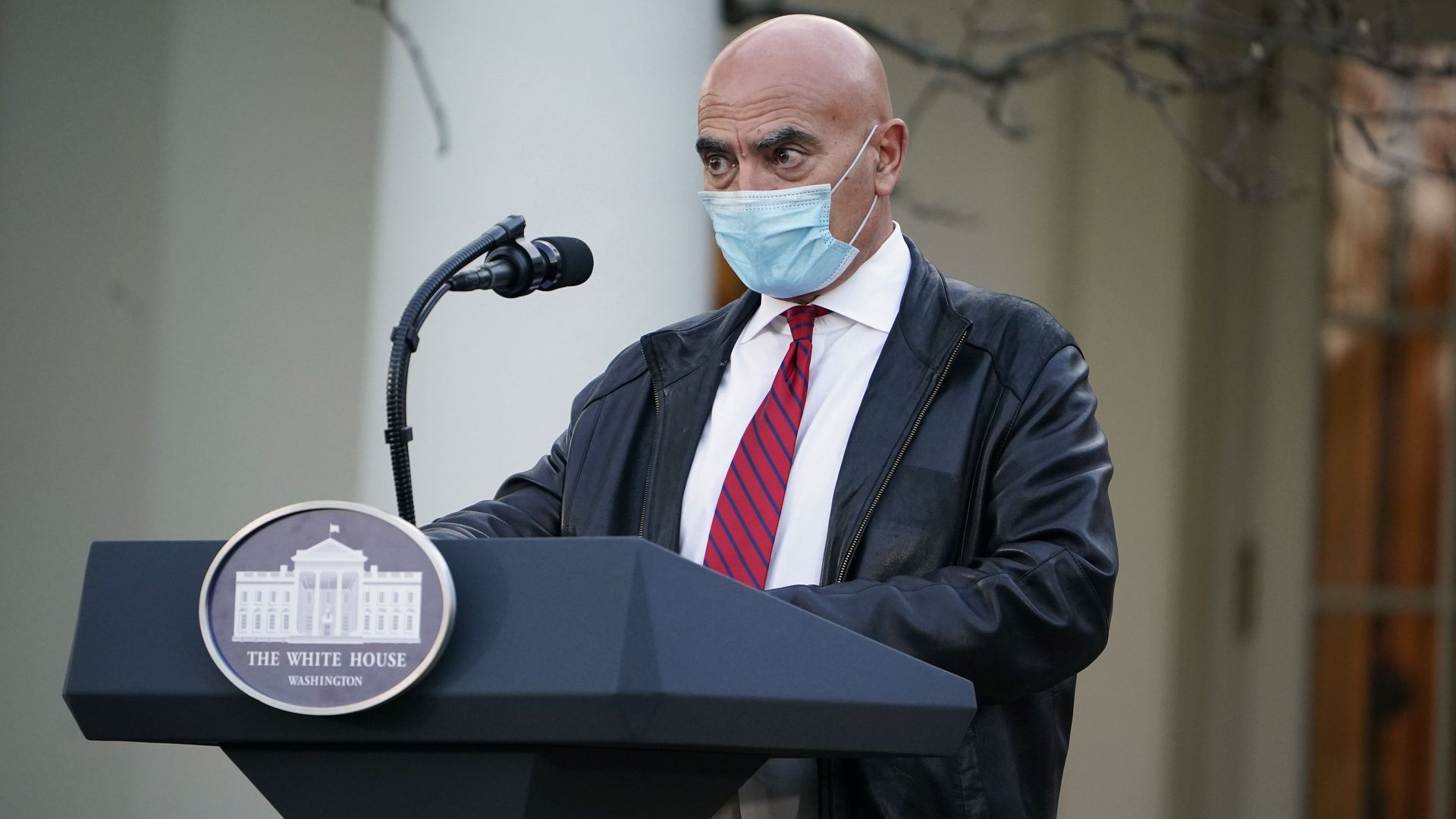Dec 21, 2020 - Health
The coronavirus mutation in the U.K.: What you need to know
Add Axios as your preferred source to
see more of our stories on Google.

Moncef Slaoui, chief science adviser for Operation Warp Speed. Photo: Mandel Ngan/AFP via Getty Images
